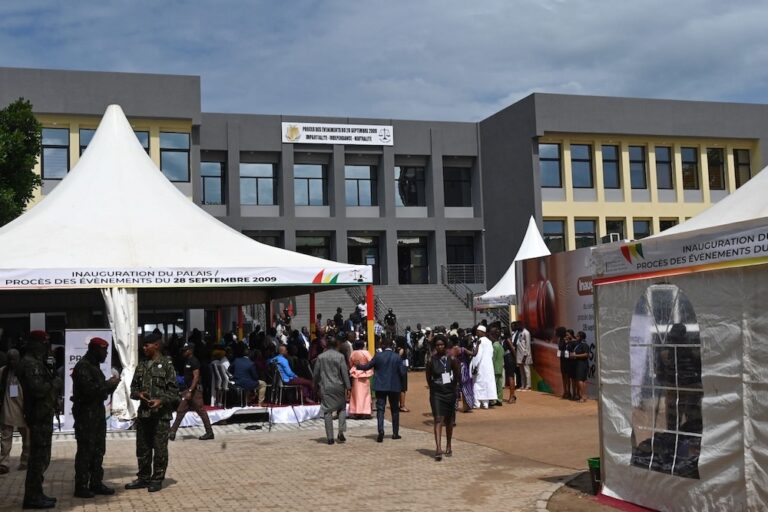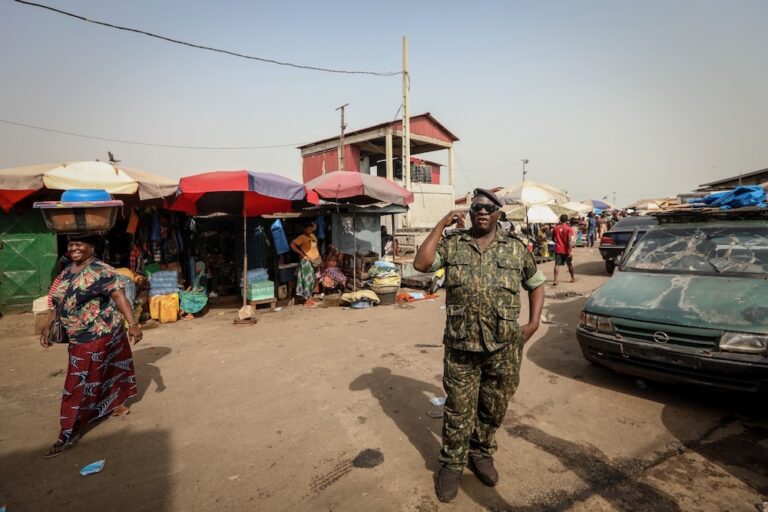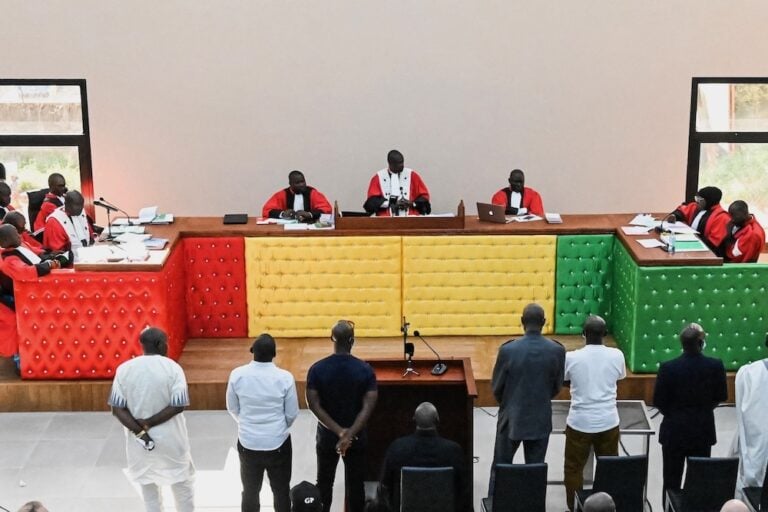The Guinean government should step up efforts to investigate a massacre of opposition supporters that took place in September 2009, says Human Rights Watch.
(Human Rights Watch/IFEX) – December 5, 2012 – The Guinean government should increase support to the domestic investigation of the September 28, 2009 massacre, rapes, and other abuses to enable fair, credible prosecutions of the crimes without further delay, Human Rights Watch said in a report released today. The conclusion is based on extensive research and analysis of the factors holding up the investigation. International partners – including the European Union (EU), United States, and the Office of the High Commissioner for Human Rights – also should increase pressure and support for justice to be done.
The report Waiting for Justice: Accountability before Guinea’s Courts for the September 28, 2009 Stadium Massacre, Rapes, and Other Abuses analyzes Guinea’s efforts to hold those responsible for the crimes to account. On that day, several hundred members of Guinea’s security forces burst into a stadium in Guinea’s capital, Conakry, and opened fire on tens of thousands of opposition supporters peacefully gathered there. By late afternoon, at least 150 Guineans lay dead or dying, and dozens of women had suffered brutal sexual violence, including individual and gang rape. More than three years later, those implicated have yet to be held accountable.
“Victims of the horrific abuses on September 28, 2009, are waiting for justice more than three years later,” said Elise Keppler, senior international justice counsel at Human Rights Watch. “President Alpha Condé and other Guinean officials have said they support accountability, but they need to better translate the rhetoric into action. Credible prosecutions would be a major contribution in moving Guinea to an era marked by respect for rule of law.”
The report is based on research in Conakry in June 2012 and follow-up interviews with government officials, lawyers and other legal practitioners, civil society members, journalists, victims, and international partners.


